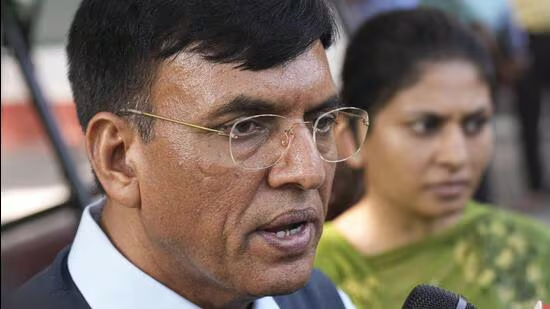15 october 2024 : Union Sports Minister Mansukh Mandaviya announced on Monday that the National Sports Governance Bill, released for public consultation, includes several provisions aimed at promoting transparency and good governance within the Indian Olympic Association (IOA) and National Sports Federations (NSFs).
A key feature of the bill is the establishment of the Sports Regulatory Board of India, which will oversee the recognition of federations and ensure they adhere to governance, financial, and ethical standards. The board will operate with “flexibility and autonomy” to regulate sports governance. Additionally, the bill proposes a dedicated appellate sports tribunal to handle disputes, streamlining the process and reducing the need for court interventions.
Mandaviya highlighted that many current federations are bogged down by litigations and issues with multiple bodies claiming to represent the same sport under the India name. The new regulatory board will grant affiliations based on government-set criteria, aiming to resolve such conflicts. The bill stipulates that only recognized bodies may use the Indian flag or national names, with violations subject to fines or imprisonment, potentially up to one year or ₹10 lakh, or both.
The bill also brings NSFs under the Right to Information (RTI) Act, promoting greater transparency. Mandaviya emphasized the importance of these governance improvements as part of India’s goal to host the 2036 Olympics.
The governance structure outlined in the bill aligns with the Olympic and Paralympic charters, setting international standards. The executive council (EC) size will be capped at 15 members, with 10 percent of voting members being ‘Sportspersons of Outstanding Merit’ and at least 30 percent of EC members being women. Free and fair elections will be conducted by electoral officers from a Sports Election Panel, and NSFs are required to form athletes’ commissions.
Mandaviya also underscored the need for talent identification and development to enhance India’s global athletic performance, with policies supporting these goals. The bill encourages a public-private partnership model to generate revenue and sustain the sports ecosystem.

